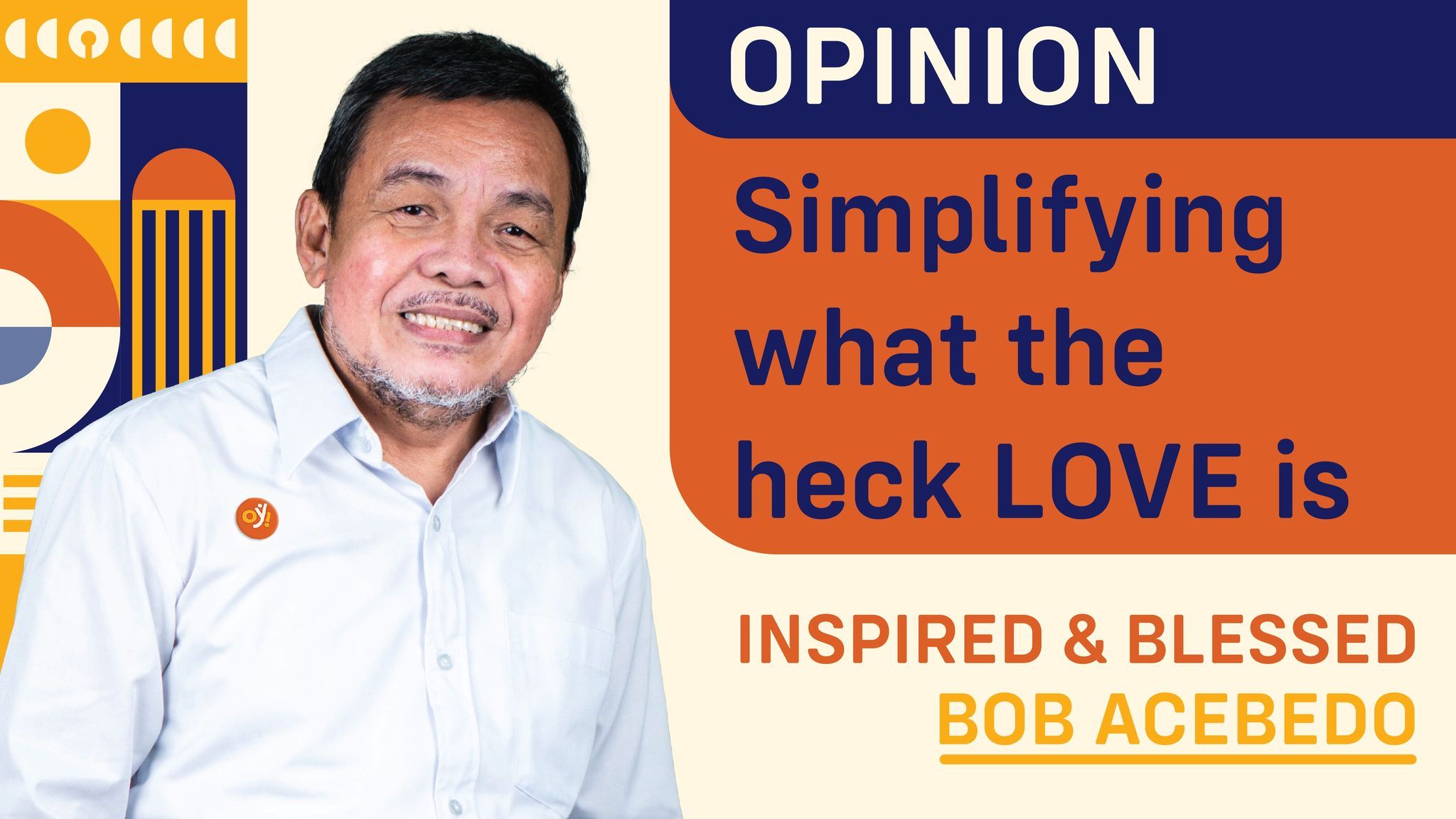Love. The most powerful and mysterious universal force. It is considered as the be-all and end-all of life – whence, from birth we have proceeded from God’s creative act of love; and we were brought into this world into a locus of love, our family; then with our transgressions, God (in Jesus) delivered us through his redemptive love; and to our afterlife, we shall forever delight in God’s compensative love.
No denying, whilst love is the most attractive, most discussed, or omnipresent topic, yet it is the most incomprehensive, if not often elusive or ambiguous reality. In my younger days I was apt to subscribe to the truism that “Love cannot be logically defined but can only be experienced. It is not a problem to be solved but a mystery to be lived or cherished.”
Back in my formative years in the seminary, we were taught about the various forms and definitions of love according to ancient Greek etymology: “Eros” or erotic love; “Philia” or philosophic, philanthropic, and friendly love; “Storge” or kinship, family, and patriotic love; “Ludus” or fun, game, and playful love; “Pragma” or duty-based love; “Philautia” or self-love, which can be either healthy or unhealthy; and “Agape” or selfless, unconditional, and universal love.
My learnings about love back then were largely theoretical or academic – wanting in experience or empirical basis. Love was more discussed than experienced, more contemplated than practiced or done.
In short, back in the seminary we were just philosophizing about love.
Albeit, for a time, back when I was a seminarian, I felt or “expressed” the “praxis” (or “walking the talk”) of loving the masses, the “poor, oppressed, and deprived”, during our summer apostolate to far-flung barrios.
My radical transformation about love occurred, however, when I met the “love of my life”, my wife – who erstwhile was my student in college. In one glorious moment, everything seemed to glow or glitter in my life. There were no “lurking dark clouds” and I could only see the appealing rainbow colors. It was a eureka moment for me. “Is this real love?” I asked in utter nirvana.
Thus, defying the student-teacher status we had and likewise the certain impracticality of marrying too early, I forgot my priestly vocation and decided to get married.
Now, not discrediting but rather encompassing all the foregoing ramifications, theoretical or otherwise, of love, I’m impelled to reckon that – in practical terms – the “reality” of love (authentic love that is) boils down to four fundamental elements:
1. Presence. True love is best expressed through existential or personal presence – of the lover and the beloved. The subject of love is neither the “possession” nor the “position”, but the “person” – the real who and what the lover or beloved is. In the theological milieu, God’s encompassing love was made immanent and concrete through Jesus, who became human and be “present” with us, then and now. In the practical realm, one can have a myriad of examples in mind about “presence as best expression of love”.
2. Action. True love cannot remain up in the clouds, nor through mere words. Love has to be acted, to be demonstrated, to be lived. You say what you mean, you mean what you say, and you do or live what you mean. Walking the talk, that is. As we used to quip back in our seminary days, “cum fundamento in re” or with foundation on reality.
Corollary to “love as action” are the important ingredients of “responsibility and commitment”. True love goes beyond intimacy and passion; it requires unbridled commitment and taking responsibility for deeds and consequences.
3. Sacrifice. Struggles that are devoid of love are simply suffering. But struggles that are coupled with love become sacrifice – and, hence, meaningful or imbued with a purpose or a greater good. True love is not all roses or devoid of sacrifice (which is part and parcel of love). Thus, couples commit themselves to marriage “for better or for worse, for richer or poorer, in sickness and in health.” Divine “agape” or God’s redemptive love required Jesus to sacrifice himself on the cross out of love for humankind.
4. Surpasses time and space, money and sex. Sex without love is plain lust, and money without love simply smacks of materialistic ends.
In the same token, true love is not time-bound and transcends the immanence of temporal exigencies or changes. Rather, like the heavenly eternal joy, true love thrives through eternity – always cherishing nothing more, nothing less, only real love. In local lingo, “walang pagkupas o pagbabago, at hanggang FOREVER!”
#InspiredAndBlessed #BobAcebedo #SimplifyingWhatTheHeckLoveIs #Love #Eros #Philia #Storge #Ludus #Pragma #Philautia #Agape #OpinYonColumn #OpinYon #WeTakeAStand
